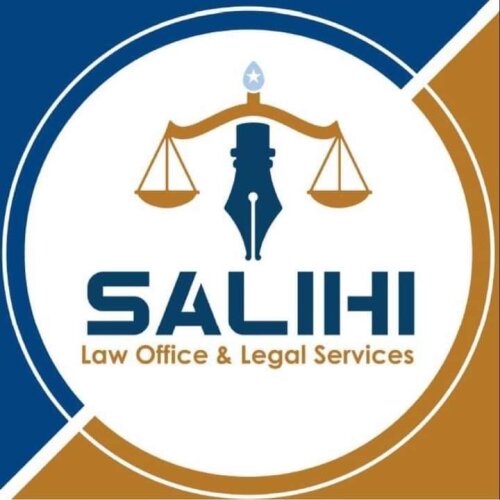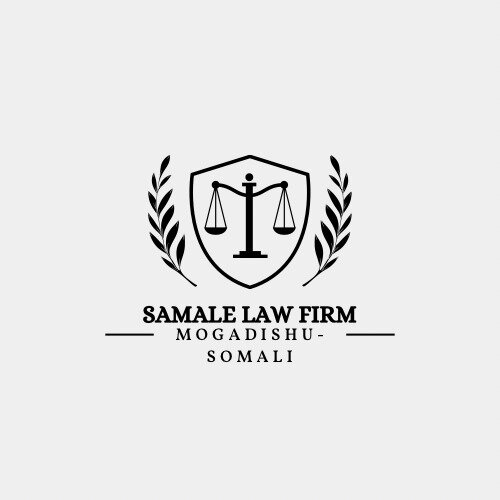Best Mining Law Lawyers in Mogadishu
Share your needs with us, get contacted by law firms.
Free. Takes 2 min.
List of the best lawyers in Mogadishu, Somalia
About Mining Law in Mogadishu, Somalia
Mining Law in Mogadishu, Somalia governs the exploration, extraction, processing, and marketing of mineral resources within the city and surrounding regions. With growing interest in Somalia's mineral wealth, especially gold, gemstones, and industrial minerals, the regulatory landscape is rapidly evolving. The central goal of Mining Law is to ensure mineral resources are developed sustainably and equitably, balancing economic growth, community interests, and environmental protection. In Mogadishu, both national and local authorities play significant roles in granting mining rights, setting safety standards, and enforcing compliance with legal requirements.
Why You May Need a Lawyer
Engaging in mining activities in Mogadishu can be complex due to the overlapping roles of federal, regional, and local government bodies. You may need a lawyer if you are:
- Applying for a mining license or permit
- Negotiating joint ventures or contracts with local or foreign partners
- Facing disputes over land ownership or mining rights
- Seeking legal clarity on taxation, export regulations, or royalties
- Involved in community or environmental disputes linked to mining
- Subject to inspections, compliance investigations, or penalties
- Protecting your intellectual property or trade secrets relating to mining
A qualified lawyer can help you navigate regulations, secure permits, and minimize financial or reputational risks.
Local Laws Overview
Mining in Mogadishu is regulated under Somalia's federal Mining Code, with additional oversight by the Ministry of Petroleum and Mineral Resources and relevant Mogadishu authorities. Key aspects include:
- Licensing: All mining activities require appropriate licenses, including reconnaissance, exploration, and exploitation licenses. Unauthorized mining is illegal.
- Land Use: Permission from both government bodies and, in some cases, local communities is necessary before mining can begin.
- Environmental Protection: Operators must conduct environmental impact assessments and implement approved management plans.
- Taxes and Royalties: License holders are subject to mining royalties and taxes, with rates depending on the mineral and production scale.
- Health and Safety: There are mandatory health and safety standards for miners and surrounding communities.
- Community Rights: Certain laws protect the interests of local communities, requiring benefit-sharing agreements.
- Dispute Resolution: Mining disputes may be resolved through administrative bodies or courts, with options for mediation or arbitration.
Frequently Asked Questions
What types of mining permits are required in Mogadishu?
Generally, you need a Government-issued license for exploration, mining, or trading in minerals. Different types of permits exist for small-scale and large-scale operations.
How can I obtain a mining license?
Submit an application to the Ministry of Petroleum and Mineral Resources, often with supporting documents such as environmental assessments and land agreements.
Are foreign investors allowed to participate in mining in Mogadishu?
Yes, but they must comply with local ownership rules, licensing requirements, and sometimes partner with Somali nationals or companies.
What taxes and royalties apply to mining operations?
The law imposes taxes and royalties based on the mineral being extracted and the volume produced, payable to both federal and regional authorities.
What environmental regulations apply to mining?
Operators are required to conduct environmental impact assessments, implement mitigation plans, and monitor ongoing impacts as a condition of their license.
How are land ownership disputes for mining sites resolved?
Disputes may be settled through local courts, with possible involvement of traditional leaders or mediation, depending on the nature and location of the dispute.
Are there special regulations for artisanal or small-scale mining?
Yes, the law recognizes small-scale mining and has simplified licensing and safety requirements, but prohibits the use of hazardous chemicals like mercury.
What penalties apply for illegal mining?
Penalties range from fines and seizure of equipment to imprisonment, depending on the severity and circumstances of the violation.
Can mining rights be transferred or sold?
Licenses may be transferred, but only with government approval and compliance with local ownership and operational requirements.
How can local communities be involved or compensated?
The law requires benefit-sharing agreements and consultative processes to ensure communities benefit from mining activities and are protected from harm.
Additional Resources
There are several resources and organizations that can support your understanding of Mining Law in Mogadishu:
- Ministry of Petroleum and Mineral Resources (Federal Government of Somalia)
- Benaadir Regional Administration
- Somali Chamber of Commerce and Industry
- Somalia Natural Resources and Mining Association
- Legal aid clinics and NGOs supporting community rights in resource extraction
- Private law firms specializing in natural resources law
Next Steps
If you need legal assistance regarding Mining Law in Mogadishu:
- Gather all documentation about your mining project, ownership, or dispute.
- Seek out a lawyer or law firm with expertise in mining and natural resources law.
- Consult with relevant government departments, beginning with the Ministry of Petroleum and Mineral Resources.
- Consider approaching local organizations or legal aid services if you need help understanding your rights or obligations.
- Document all communications and decisions for future reference or in case of legal proceedings.
Working with experienced legal professionals ensures you comply with laws, protect your interests, and avoid costly setbacks in your mining venture.
Lawzana helps you find the best lawyers and law firms in Mogadishu through a curated and pre-screened list of qualified legal professionals. Our platform offers rankings and detailed profiles of attorneys and law firms, allowing you to compare based on practice areas, including Mining Law, experience, and client feedback.
Each profile includes a description of the firm's areas of practice, client reviews, team members and partners, year of establishment, spoken languages, office locations, contact information, social media presence, and any published articles or resources. Most firms on our platform speak English and are experienced in both local and international legal matters.
Get a quote from top-rated law firms in Mogadishu, Somalia — quickly, securely, and without unnecessary hassle.
Disclaimer:
The information provided on this page is for general informational purposes only and does not constitute legal advice. While we strive to ensure the accuracy and relevance of the content, legal information may change over time, and interpretations of the law can vary. You should always consult with a qualified legal professional for advice specific to your situation.
We disclaim all liability for actions taken or not taken based on the content of this page. If you believe any information is incorrect or outdated, please contact us, and we will review and update it where appropriate.










